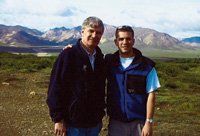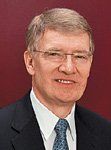- Case-Based Roundtable
- General Dermatology
- Eczema
- Chronic Hand Eczema
- Alopecia
- Aesthetics
- Vitiligo
- COVID-19
- Actinic Keratosis
- Precision Medicine and Biologics
- Rare Disease
- Wound Care
- Rosacea
- Psoriasis
- Psoriatic Arthritis
- Atopic Dermatitis
- Melasma
- NP and PA
- Skin Cancer
- Hidradenitis Suppurativa
- Drug Watch
- Pigmentary Disorders
- Acne
- Pediatric Dermatology
- Practice Management
- Prurigo Nodularis
- Buy-and-Bill
Article
Indiana dermatologist highlights myriad leadership hats he's worn in his career
Few can say that they have served their professions by presiding over not just one or two - but rather, many - regional, national and international societies. C. William Hanke, M.D., M.P.H., can. The Carmel, Ind., dermatologist has been president of 11 professional societies, the largest of which was the American Academy of Dermatology (AAD) from 2008 to 2009.

Key Points

C. William Hanke, M.D., M.P.H., can. The Carmel, Ind., dermatologist has been president of 11 professional societies, the largest of which was the American Academy of Dermatology (AAD) from 2008 to 2009.

Dr. Hanke also is vice chairman of the department of dermatology and procedural dermatology fellowship training director at St. Vincent Hospital, Indianapolis.
"My most meaningful activity in recent years has been directing the ACGME-accredited procedural dermatology fellowship training program at St. Vincent Hospital," he says. "The recent fellows have all gone on to successful careers in various parts of the U.S."
And advocacy remains his passion. "In recent years, Dr. Chris Obeime and I have testified before the Indiana House and Senate on dermatology issues," he says. The dermatologists have been testifying against anatomic pathology billing legislation to preserve the dermatologist's right to read his or her own slides.
Diversity-driven
By gaining diverse experience in non-dermatology areas of medicine, Dr. Hanke says he brings varied opinions and ideas back to dermatology. The need for diversity starts young, he says.
"If you have training experiences in various parts of the country, you are exposed to different viewpoints from people that are not all the same," he says. "I think that diversity is what makes a physician, or frankly, any human being, better. No one knows exactly what the future U.S. healthcare system will look like. Every medical student should try to add diversity to their medical training so that they can 'fit in' in multiple places and fill different roles in medicine."
Proudest accomplishments
Dr. Hanke says that one of his most formative times was serving as president of AAAHC.
"I performed AAAHC accreditation surveys for 17 years, an experience that would later allow me to move patient safety to the forefront of the AAD agenda," he says.
As he served as president of AAD, "We did a number of things. We invited 100 to 150 people to a patient safety summit in dermatology, then set up an AAD ad hoc task force on patient safety and quality.
"The ad hoc task force completed a strategic plan for patient safety," he says. "The task force has evolved into a full AAD Patient Safety and Quality of Care Committee."






